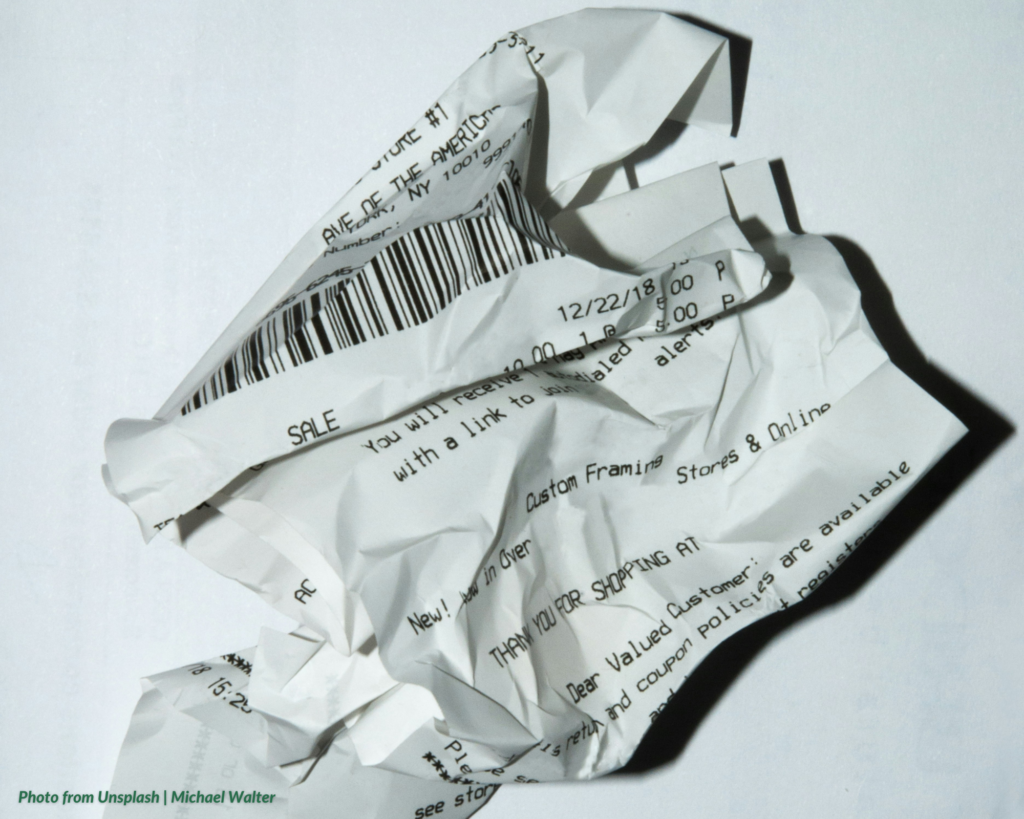
Photo from Unsplash | Michael Walter
The following post does not create a lawyer-client relationship between Alburo Alburo and Associates Law Offices (or any of its lawyers) and the reader. It is still best for you to engage the services of a lawyer or you may directly contact and consult Alburo Alburo and Associates Law Offices to address your specific legal concerns, if there is any.
Also, the matters contained in the following were written in accordance with the law, rules, and jurisprudence prevailing at the time of writing and posting, and do not include any future developments on the subject matter under discussion.
AT A GLANCE:
“A VAT-registered person shall issue a VAT Invoice for every sale, barter, exchange, or lease of goods or properties, and for every sale, barter, or exchange of services.” (Section 113, National Internal Revenue Code of 1997 as amended by Section 21, Ease of Paying Taxes Act)
Republic Act No. 11976 or the Ease of Paying Taxes Act mandates the use of a single document for both sale of goods and services. Thus, all references to Sales Invoice or Official Receipt shall be referred to as Invoice.
The law says:
“A VAT-registered person shall issue a VAT Invoice for every sale, barter, exchange, or lease of goods or properties, and for every sale, barter, or exchange of services.” (Section 113, National Internal Revenue Code of 1997 as amended by Section 21, Ease of Paying Taxes Act)
An invoice is a written account evidencing the sale of goods and/or services issued to customers in the ordinary course of trade or business. This includes Sales Invoice, Commercial Invoice, Cash Invoice, Charge or Credit Invoice, Service Invoice, or Miscellaneous Invoice.
An invoice may be a VAT Invoice or a Non-VAT Invoice. A VAT Invoice is issued to customers for the sale of goods, properties, services or leasing of properties subject to VAT in the ordinary course of trade or business, whether cash sales or sales on account (credit or charge sales).
Are there any guidelines for the conversion of Official Receipts to Invoice?
Yes. Revenue Regulation No. 07-2024 was issued by the BIR to provide the guidelines. Under this revenue regulation:
- Businesses subject to internal revenue tax must issue registered invoices for sales or services valued at P500 or more. This threshold is adjusted every three years based on inflation.
- Sellers must issue invoices upon buyer’s request, regardless of transaction amount. Even if individual sales are below P500, if total daily sales reach P500, one invoice for the total amount can be issued. VAT-registered businesses must issue invoices regardless of transaction amount.
- The word “Invoice” must be clearly printed on the document, with options for indicating cash or charge sales. Official Receipts are no longer mandatory but can be issued optionally.
What information should an invoice contain?
The following information shall be included in a VAT Invoice:
- Seller’s registered name, TIN, and business address.
- Statement of VAT registration status.
- Clearly labeled as an “Invoice.”
- Date of transaction.
- Space for buyer’s details (not mandatory for Business-to-Consumer transactions).
- Prominent serial number.
- Quantity, unit cost, and description of goods or services.
- Total sale amount, with VAT shown separately.
- Breakdown of sales if applicable.
- Additional information for specific transactions.
What will happen to a taxpayer’s unused Official Receipts?
Under Revenue Regulation No. 11-2024, amending the earlier issued Revenue Regulation No. 7-2024, the deadline for using old official receipts has been removed. Taxpayers can keep using their remaining official receipt until they are completely used.
This means that if you have unused official receipts that were not converted into invoices, they can still be used as supplementary documents, but not primary evidence of sale. As such, these receipts will be treated as proof of payment or collection, rather than evidence of sale. These unused official receipts must be stamped with “THIS DOCUMENT IS NOT VALID FOR CLAIM OF INPUT TAX”.
Alternatively, businesses can convert unused Official Receipts into invoices by striking through the term “Official Receipt” and replacing it with the term “Invoice” or other similar terms. These converted documents are valid claims for input taxes until December 31, 2024. New invoices with an Authority to Print (ATP) should be obtained before fully consuming the converted Official Receipts.
Revenue Regulation No. 11-2024 and Revenue Memorandum Circular No. 66-2024 were issued for the purpose of making the transition to the system under the Ease of Paying Taxes Act (EOPT) more accommodating to taxpayers.
Related Articles:
Alburo Alburo and Associates Law Offices specializes in business law and labor law consulting. For inquiries regarding legal services, you may reach us at info@alburolaw.com, or dial us at (02)7745-4391/ 0917-5772207/ 09778050020.
All rights reserved.

